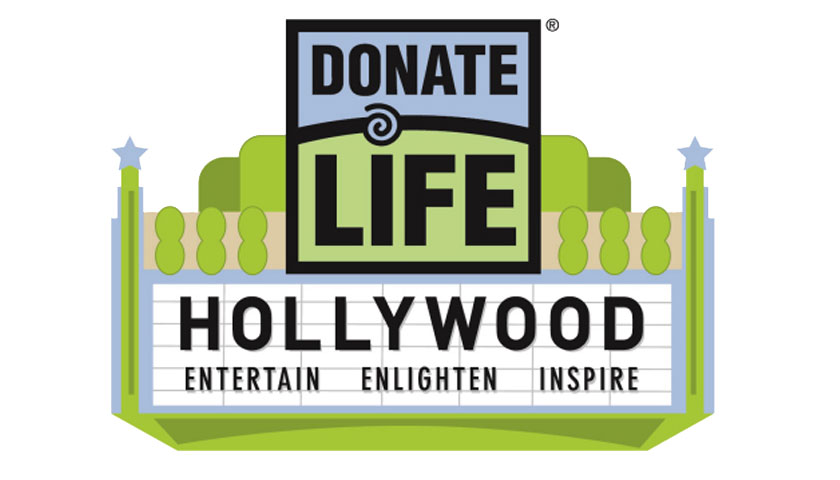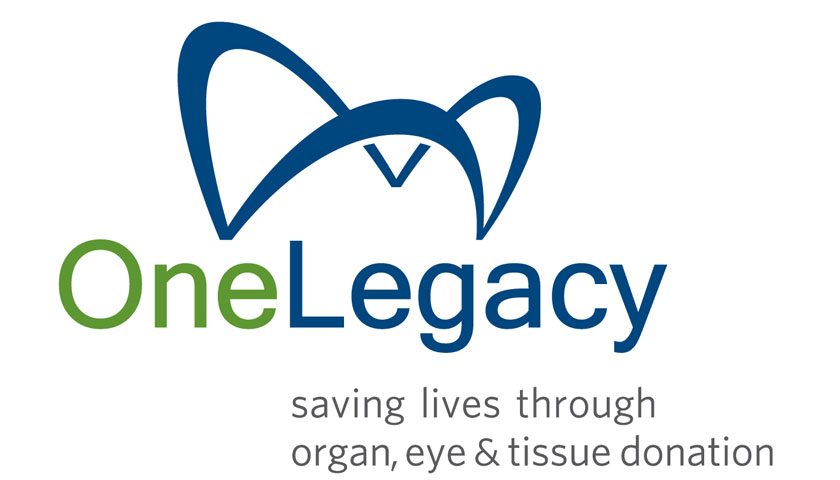Hollywood can help save lives. That was the message at an event hosted by Donate Life Hollywood (DLH) earlier this month. DLH is an initiative of the national “Donate Life” community, including organ procurement organizations, eye and tissue banks, transplant centers, and people personally touched by donation and transplantation. DLH ran successfully between 2008 and 2012 and re-launched this year to increase the number of authentic and positive organ, eye and tissue donation stories on television and film by providing resources to writers and support to filmmakers, free of charge.
“Research shows that when television shows perpetuate myths about donation, they cost lives,” said Tenaya Wallace, DLH founder and campaign director. “Donate Life Hollywood nearly eliminated myths and misconceptions that were rampant on television before the campaign’s initial run, things like a black market or rich people buying an organ. With a new crop of medical shows and an explosion of content, we are seeing Hollywood’s bad habit return; so Donate Life Hollywood is back.”
At DLH’s reboot event sponsored by OneLegacy, the largest organ procurement organization in the United States serving seven counties in Southern California, writers, producers and actors gathered with transplant recipients, donor families, donation professionals and transplant surgeons to relaunch the DLH campaign and celebrate the power of media to bring awareness and action to this cause.
“While television shows will never be completely accurate, good writers strive to be as authentic as possible,” shared Aaron Mendelsohn, DLH supporter, screenwriter and board member of the Writers Guild of America West during the relaunch event. “We work very hard to imbue our characters with genuine and truthful voices, whether they’re autistic or ego-maniacal doctors or a patient waiting for a transplant. Having access to DLH and their vast network of experts, medical innovations and poignant stories will make our writing more authentic and our stories more compelling.”
During its original tenure, DLH supported many medical dramas, including an emotional organ donation storyline in the series finale of ER. In 2009 DLH built a partnership with CBS and “Three Rivers,” a medical drama about transplant surgeons, that led to a 6 percent increase in the public’s willingness to register as donors, the largest single-year increase the Donate Life community has ever seen.
“Storytellers influence how people understand and support organ and tissue donation,” said Tom Mone, CEO of OneLegacy. “Because the opportunity to donate is very rare, with only half of 1 percent of people dying in a way that is viable for organ donation, we need everyone who can donate to say yes to donation. Hollywood tells dramatic stories. When they tell the real-life stories of organ donation, it inspires people to say yes and helps us save lives.”
Beyond providing free expert consultation for writers, DLH supports documentary filmmakers and independent producers with resources and access to the donation and transplantation community. At the relaunch event, DLH featured five new projects in various stages of development that DLH is assisting in distinct ways. These projects include three documentaries, a scripted series called “(Sorta) Supportive,” written and produced by two-time double lung recipient Travis Flores, and a docu-drama series co-produced by a heart recipient.
“After being at the Donate Life Hollywood event, I believe more passionately than ever in the role media can play in making a difference in organ donation,” said Carl Kurlander, producer of “Burden of Genius,” one of the projects highlighted at the DLH event. The documentary tells the fascinating story of legendary transplant pioneer Dr. Thomas Starzl. Kurlander is also the co-screenwriter of “St. Elmo’s Fire” and writer/producer of the “Saved by the Bell” franchise. “After every screening of ‘Burden of Genius,’ audience members would tell us they were changing their organ-donation status because of the film. Being a part of the Donate Life Hollywood community, I see how not only our film, but other media can be used to change the way organ donation is perceived in the world. That is something that truly builds on the legacy of Dr. Starzl.”

